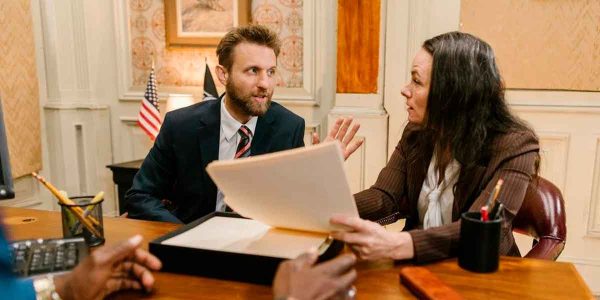Probate lawyer
A probate lawyer is a state-approved statutory agent who advises an executor or one or more beneficiaries of a deceased property. Their responsibilities vary greatly depending on the state probate law in which the dead died and whether the person died intestate.
Probate Attorneys can assist with a variety of tasks during the probate process. For example, they help identify and secure property assets and get a quote for the deceased’s property. We can also guarantee that all necessary documents by the Probate Court will be submitted promptly.
In addition, they can advise on settling deceased bills and outstanding debt and maintaining a real estate account. You can also manage all relevant real estate and inheritance tax payments to address all income tax issues.
Here are some of the other everyday tasks that a probate attorney can help with:
- Resolving disputes between beneficiaries and personal representatives
- Sale of all kinds of real estate
- Distribution of deceased wealth among beneficiaries
As you can see, probate lawyers can assist with various tasks during the probate process. As a result, you can take a little overwhelming process and make it easier and less stressful.
When do you need a probate lawyer?
Now that you know what a probate lawyer is, you are probably wondering if you need it for your probate issue and when you will.
Following are some questions that can help you know when you need a probate lawyer:
Can we transfer the deceased party’s assets outside of the probate?
If the deceased properly planned their property, you may not need to deal with the probate issue in court. In addition, shared assets, such as shared tenants and survivor communities, can often be handled outside the Probate Court.
It may also be unnecessary for assets for which the testator has been nominated as a beneficiary.
Can this estate pay all of the existing debts?
You may not need a probate lawyer if your property has enough money to pay all legitimate debt, such as final income tax, medical expenses, funeral expenses, etc.
If you find that your property is not large enough to pay these invoices, you should contact a probate lawyer to find out how to produce these invoices. Under no circumstances may you repay these other debts without consulting a lawyer.
Are there minor estate procedures fulfilled by the estate?
It’s best if you don’t need any discounts, but if that’s not possible, check to see if you can use the “small discount” procedure with your deals. All states offer some real estate savings, especially if the property is “small” (total wealth is below a particular value); or if the property is straightforward. These acronyms are complete, such as a streamlined probate procedure (often referred to as “summary probate”) or the submission of a simple affidavit (affidavit) to an individual or group that owns an asset. This means the ability to use non-judicial procedures. Each state has its own rules for discounts. These more straightforward steps can be helpful.
Is the process simple, or does the estate contain complicated assets?
If the state where the deceased lived passed a set of model methods called the Unified Probation Act, the probate process should be pretty straightforward. In UPC, most probates are conducted under minimal court supervision. However, some other states have simplified the procedure without adopting the UPC.
It can be fairly simple if the property contains only common assets such as homes, bank or brokerage accounts, vehicles, household items, etc. However, things get even more complicated when the real estate includes business, commercial real estate, or other assets that require special ongoing processing. If you need to manage, evaluate, or sell your business, it’s probably a good idea to consult an expert. These jobs are not for amateurs.
Is there any conflict between your family members?
Conflicts are rare, but if your family makes noise to sue for real estate, talk to a lawyer immediately. Probate litigation can tear a family apart and withdraw large amounts of money from real estate. A lawyer may be able to help you avoid the proceedings.
What comes after hiring a probate lawyer?
Hiring a probate lawyer can help you navigate the probate process as smoothly as possible. However, there are some things you need to do to make the process as productive as possible.
Here are some tips to keep in mind when working with a probate lawyer:
- First, provide lawyers with all necessary documents (wills, certificates, insurance policies, tax returns, etc.).
- Ask questions in advance and communicate frequently
- Keep an eye on your case
Conclusion
When managing probate, you can get legal advice from an experienced lawyer familiar with state law and how the local probate court works. However, not all executors need to hand over the probate case to a lawyer; and even hire a lawyer for limited advice. If the property you manage does not contain abnormal assets and is not too large, you may be able to do it without the help of a lawyer.












